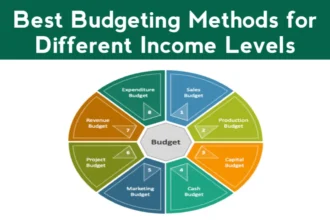Introduction: The Price of Freedom is Financial Discipline
The freelance and self-employed lifestyle offers unparalleled freedom: choosing your projects, setting your hours, and being your own boss. However, this independence comes with a significant responsibility—you are now the CEO, accountant, and financial planner of your one-person enterprise. Without the safety net of a regular paycheck or employer-sponsored benefits, proactive financial management isn’t just a good habit; it’s the key to your survival and success.
This guide provides a strategic framework to transform your financial chaos into clarity and confidence.
The 10 Commandments of Freelance Finance
1. The Sacred Separation: Open a Business Account
Mixing personal and business finances is a recipe for confusion, tax-time nightmares, and missed deductions.
- Action: Immediately open a dedicated business checking account. Route all client payments here and pay all business expenses from it. This creates a clear financial trail, simplifies bookkeeping, and presents a professional image.
2. Become Your Own Tax Authority: Save Proactively
Unlike salaried employees, no one is withholding taxes for you. A large, unexpected tax bill can be devastating.
- The Rule: Set aside 25-30% of every single payment you receive into a separate “Tax Savings” account.
- Pro Tip: Consider making quarterly estimated tax payments to avoid penalties and spread the burden throughout the year.
3. Build Your “Freedom Fund”: The Emergency Buffer
Variable income is the greatest financial challenge for freelancers. Your emergency fund is your stability anchor.
- The Goal: Save 3-6 months’ worth of essential living expenses. This fund covers you during dry spells, client late payments, or unexpected life events without derailing your business.
4. Know Your Numbers: Meticulously Track Income & Expenses
You can’t manage what you don’t measure. Precise tracking is crucial for pricing your services correctly and maximizing tax deductions.
- Tools: Use apps like QuickBooks, FreshBooks, or even a simple spreadsheet. Categorize every business expense—home office, software, internet, client meetings.
- Benefit: This habit reveals your profit margins and ensures you claim every deduction you’re entitled to.
5. Protect Your Greatest Asset: Get Health Insurance
For a freelancer, your ability to work is your primary income source. A medical emergency can jeopardize both your health and your business.
- Action: Invest in a comprehensive health insurance plan. View it not as an expense, but as a non-negotiable investment in your business’s continuity.
6. Your Future is in Your Hands: Plan for Retirement
There’s no company 401(k) match. Your retirement security is entirely up to you.
- Options: Explore retirement vehicles like a Solo 401(k), SEP IRA, or a similar plan in your country. These offer significant tax advantages.
- Strategy: Start small. Automate a monthly contribution, even if it’s just $100. The power of compounding over time is your most powerful wealth-building tool.
7. Pay Yourself a Consistent Salary
To avoid the stressful “feast or famine” cycle, institute a regular “payday” for yourself.
- How It Works: Calculate a sustainable monthly salary based on your average income. Transfer this fixed amount from your business account to your personal account each month. The surplus in your business account covers taxes, savings, and reinvestment.
8. Price for Profit, Not Just Hours
Many freelancers undercharge by only accounting for their time, not their value.
- Strategy: Factor in all your business costs (taxes, software, healthcare, retirement) plus a profit margin when setting project rates. Your rate should sustain your life and grow your business.
9. Diversify Your Client Base
Relying on one or two large clients is a high-risk strategy.
- Goal: Continuously market yourself to build a diverse roster of clients. This insulates your income if one client leaves.
10. Invest in Your Growth
The most valuable asset in your business is you.
- Action: Allocate a portion of your income for skill development, courses, and professional tools. Staying ahead of the curve allows you to command higher rates and secure better projects.
From Chaos to Control: A Freelancer’s Transformation
The Problem: David, a freelance writer, was a “financial zombie.” He spent everything he earned and faced a $8,000 tax bill with no savings to pay for it. The stress was crippling his creativity.
His Turnaround Plan:
- Opened a Business Account: He separated his finances, instantly clarifying his cash flow.
- Automated Tax Savings: He set up an auto-transfer of 30% of every invoice to a high-yield savings account.
- Implemented a “CEO Salary”: He started paying himself a fixed $3,500 monthly salary, living within that means.
- Tracked Relentlessly: He used a simple app to log every business expense, uncovering thousands in missed deductions.
The Result: Within one year, David had a fully-funded emergency fund, paid his taxes comfortably, and increased his rates by 20% because he understood his true cost of business. The financial anxiety was replaced with focused ambition.
The Bottom Line
Financial discipline is the foundation upon which a sustainable and fulfilling freelance career is built. It’s what allows you to truly enjoy the freedom you’ve worked so hard to achieve. By implementing these strategies, you stop being just a creative professional and become the successful CEO of your own thriving enterprise.
Your first assignment? Pick one of these ten commandments and implement it this week.
What’s your biggest freelance finance challenge? Share your experience and tips in the comments below to help our community of independents grow stronger together.









